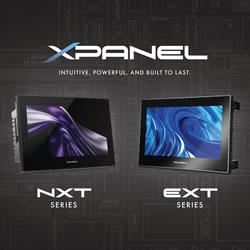These 2023 Conveyor System Trends Can Help Manufacturers and Distributors Improve Efficiency, Says Ultimation Industries
The need for faster throughput, increased automation and more efficient use of energy and space influence today’s conveyor system designs
Material handling needs are changing as manufacturers and distributors look for ways to keep up with the growth of e-commerce and reduce their environmental impact, according to Ultimation Industries. Faster throughput, increased automation and more efficient use of energy and space are some of the factors that are influencing conveyor system designs in 2023.
Ultimation is the leading direct-to-consumer conveyor manufacturer, specializing in solving productivity challenges with fast-to-deploy solutions for the automotive, food processing, vertical farming, heavy equipment, warehousing, fulfillment and delivery sectors.
"Over the past year, we've seen an increase in requests from manufacturers for flexible material handling solutions that allow them to scale quickly and reduce energy consumption…without requiring major capital expenditures," said Kali Cresent, general manager for Ultimation. "We expect those trends to continue—and even accelerate—into 2023 and beyond."
Cresent pointed to five growing trends in the conveyor industry:
1. Moving more with less energy. Increasingly, companies are looking for every opportunity to reduce their energy consumption. An unexpected place to find savings is in material handling systems. Conveyors equipped with motorized driven roller (MDR) systems are an energy-efficient alternative to legacy systems. MDRs operate with 24-volt DC power and only use electricity when they are actively moving cargo. Cresent says a typical 5-foot Chain Driven Live Roller (CDLR) conveyor system using approximately 0.75kWh of energy for operation could save up to 81% in energy usage by replacing it with a same-size MDR system. MDRs are also quiet and can handle a multitude of products such as packages, tote bins, pallets, tires, cartons and more.
2. Building up. Companies that need to scale up fast don't have time to wait for building expansions or the acquisition of additional square footage. Better utilization of vertical space in a warehouse or manufacturing facility through lifters and overhead conveyor systems is an affordable, effective solution that can be deployed relatively quickly. Lifters can help manufacturers and distributors move totes, cartons and pallets from one level to another with carriers designed to handle multiple load weights and sizes. In vertical farming applications, overhead style material handling systems can help with all-important space optimization.
3. Squeezing it in. Seasonal volume increases, unexpected spikes in demand and even sustained high order levels put pressure on manufacturers and distributors to get more mileage out of their existing floor space. For temporary or seasonal situations, flexible and expandable conveyors are an inexpensive investment that can be set up quickly during high volume months. Flexible conveyors can quickly form lines or curves to get materials where they need to be, and easily stored away when they're not needed. A more permanent option is the addition of fixed, curved conveyors to an existing material handling system. Curves can be used in ascending or descending applications to help minimize the footprint within a multi-tier warehouse.
4. Addressing the need for speed. Higher throughput requirements are driving many manufacturers to explore conveyor options that reach faster speeds without compromising product or people safety. Some industries are taking a page from the airlines' playbook by incorporating Interroll Portec systems that move more than 4 billion pieces of luggage annually. The speed and durability of Portec systems make them ideal for demanding material handling environments, such as distribution centers, parcel handling operations, food/wine/beverage facilities and vertical farms.
5. Automating processes. The shortage of workers, coupled with the growing adoption of Industry 4.0 technologies, means many manufacturers and distributors are turning to automated systems and robotics to meet productivity requirements. Material handling operations are no exception. Systems that integrate with radio frequency identification (RFID) and other technologies provide greater efficiency and improve accuracy. Autonomous Mobile Robots (AMR) or warehouse robots are a good option for manufacturers and distributors of all sizes who need to transfer loads within their facilities quickly and without reconfiguring production lines or factory footprints. They can be deployed wherever and whenever needed, interfacing with existing conveyor systems and providing flexibility as volumes change.
For more information about Ultimation Industries, visit https://www.ultimationinc.com.
About Ultimation
Ultimation Industries, LLC is the leading direct-to-consumer conveyor manufacturer serving the automotive, food processing, vertical farming, heavy equipment, warehousing, fulfillment and delivery industries. The company offers a line of proprietary automation systems and is also the largest integrator of Jervis Webb Conveyor Systems. Ultimation's e-commerce channel sells Ultimation, Interroll, Itoh Denki, Jervis Webb, and a wide range of other conveyor equipment. Ultimation was recognized in 2020 and 2022 as one of Inc. 5000's fastest growing private companies in America. Ultimation was also named a 2022 Michigan 50 Companies to Watch by Michigan Celebrates Small Business. Visit https://www.ultimationinc.com/ for the latest product information and news about Ultimation.
Featured Product

CIMON Xpanel eXT & nXT Series HMI
Introducing the Xpanel eXT and nXT series, advanced industrial HMI solutions that set a new standard for performance and usability. Utilizing our brand new Canvas HMI software for project creation, the Xpanel eXT and nXT series deliver a seamless and efficient user experience. They combine industrial-grade touch technology, powerful embedded OS hardware with a quad-core CPU, and an easy-to-use runtime platform. The Xpanel eXT and nXT series are specifically designed to optimize and streamline industrial operations, enhancing your HMI experience.
